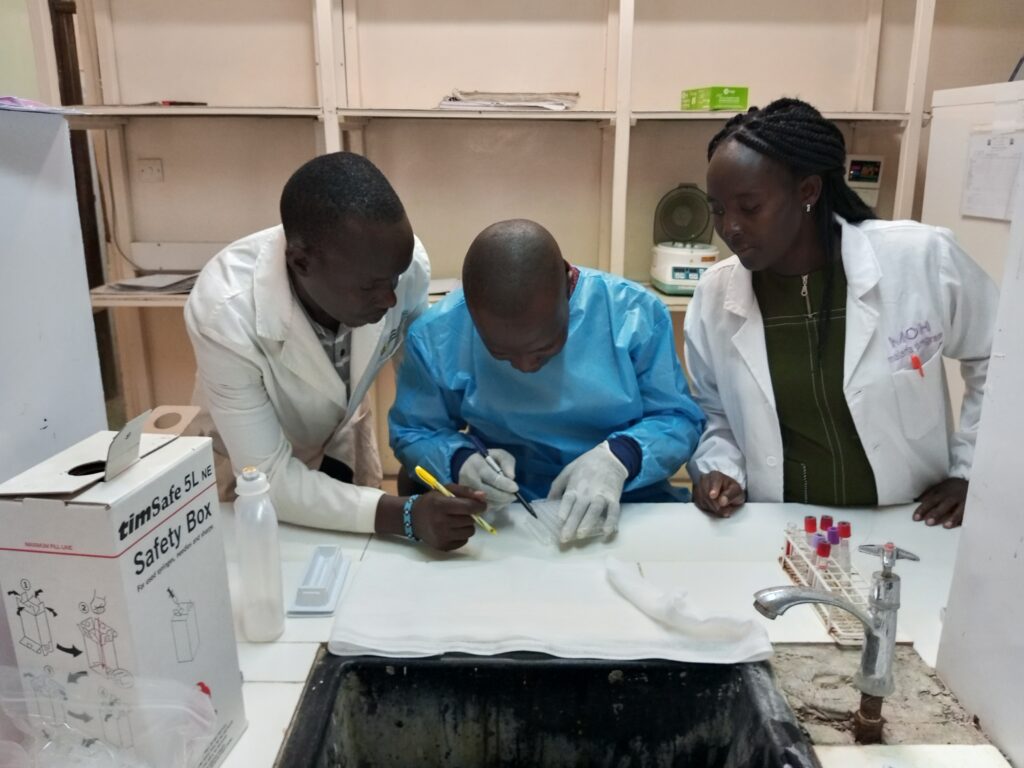
A new £6.2m healthcare project has begun in Kenya to advance elimination of visceral leishmaniasis, a deadly parasitic disease found in Africa, the Americas (particularly Brazil), the Middle East and South-East Asia, which affects up to 90,000 children and vulnerable people globally. The self-funded, not-for-profit medical research organisation, LifeArc has joined forces with FIND to improve the detection and treatment of visceral leishmaniasis through a project called ‘Intensifying Visceral Leishmaniasis Diagnostic Efforts in Support of Disease Elimination in Kenya’.
The project will run from 2024 to 2027, supporting the World Health Organization’s goal of eliminating visceral leishmaniasis by 2030 by focusing on early diagnosis and treatment to prevent disability and death. It will build on ongoing efforts to improve community awareness, boosting testing capacity both locally and nationally, and strengthening the capacity of the health system to ensure faster diagnosis and treatment. Crucially, the project will also accelerate development of novel tests for the disease, addressing the need for sensitive diagnostic procedures that can support more intense control measures.
There are three forms of leishmaniasis: visceral (affecting internal organs), cutaneous (affecting the skin) and mucocutaneous (affecting the mouth, nose and throat), all of which can cause serious disability. However, visceral leishmaniasis – sometimes known as kala-azar – is fatal in over 95% of cases if left untreated.
Visceral leishmaniasis is caused by parasites that are spread by sandflies. It can cause irregular bouts of fever, weight loss and enlargement of the spleen and liver. Symptoms can be difficult to differentiate from other diseases, such as chronic malaria. The disease is prevalent in areas with unsanitary housing conditions, which create ideal breeding sites for sandflies. Malnutrition also increases the risk that an infection will progress to the full disease, meaning that children and vulnerable adults living in some of the world’s poorest communities are most at risk.
Dr Mike Strange, Head of Global Health at LifeArc explains: “LifeArc is committed to progressing innovations in areas of unmet medical need, including neglected tropical diseases such as visceral leishmaniasis. Partnering with FIND to support the implementation of existing tools, as well as helping move forward new and improved diagnostic tests, represents a real opportunity to make a step-change and contribute towards eliminating this fatal disease in Kenya.”
Ms Helen Bokea, Director of Neglected Tropical Diseases at FIND, says: “FIND is committed to working with countries and communities to defeat this deadly disease, by boosting testing capacity so that infections can be identified early, and lives can be saved. The clock is ticking on the 2030 WHO elimination target, and this partnership with LifeArc will provide a major boost to help accelerate progress.”
The project is part of LifeArc’s Neglected Tropical Disease (NTD) Translational Challenge which aims to support the elimination and control of neglected tropical diseases through the translation, development and implementation of new diagnostics and therapeutics. FIND’s neglected tropical diseases programme is working to close multiple diagnostic gaps that are jeopardizing achievement of the targets set out in the WHO 2030 Roadmap.
Media contact
Hannah Severyn
Head of Media and PR at LifeArc
hannah.severyn[at]lifearc.org



